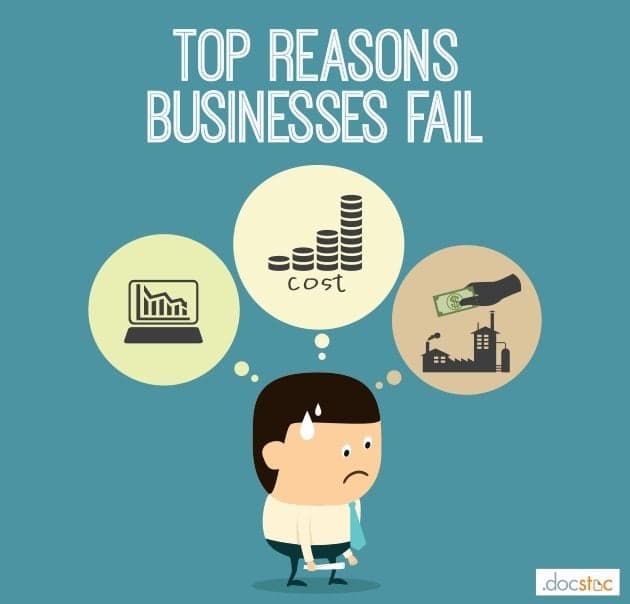The Hidden Reason Most Businesses Fail—And How to Avoid It When businesses fail, the usual suspects—lack of capital, poor management, or weak planning—are often blamed.

When businesses fail, the usual suspects—lack of capital, poor management, or weak planning—are often blamed. While these factors contribute, they are rarely the root cause. The true reason behind most business failures is far less discussed but far more impactful: the exhaustion of the entrepreneur. It’s not financial struggles or competitive pressures that force most founders to give up—it’s burnout.
Entrepreneurship is demanding. The early stages require relentless effort, long hours, and a constant balancing act between growth and survival. Many founders push themselves to the limit, believing that sheer determination will carry them through. While resilience is necessary, relying too much on toughness and endurance can signal the beginning of burnout rather than long-term success. Business owners who spend most of their energy reacting to challenges—rather than proactively shaping their path—are often the ones who struggle the most.
Fatigue creeps in subtly. It doesn’t appear overnight but builds over months or years of constant pressure. The signs are easy to miss at first: loss of motivation, decision fatigue, and a growing sense of frustration. Tasks that once felt exciting become overwhelming, and the vision that once fueled the journey starts to fade. When an entrepreneur reaches this state, everything else—cash flow, leadership, planning—begins to unravel. What seemed like an external problem is, in reality, an internal one. The business owner simply no longer has the energy to fight for their vision.
Instead of focusing on defensive attributes like endurance and perseverance, successful entrepreneurs adopt a different mindset: relentlessness. A relentless entrepreneur moves forward not just out of stubbornness, but with clear intent. They don’t just react to obstacles; they create their own path, refusing to let setbacks dictate their journey.
The analogy of a stream offers a perfect way to understand this mindset. A stream is relentless in its journey to the ocean. It doesn’t stop when it encounters obstacles—it finds a way around, over, or through them. It may temporarily slow down when it reaches a lake, but it never loses sight of its final destination. Even if it has to double back or take a longer route, the stream continues moving forward. Business owners who adopt this mindset—who focus on progress rather than resistance—are the ones who ultimately succeed.

This relentless approach is not about working harder but about working with purpose. It requires reconnecting with the original vision that inspired the business in the first place. Entrepreneurs must ask themselves: Why did I start this? What impact do I want to create? What will my business do for me and my life when it succeeds? Clarity in these answers provides the fuel needed to push forward, even in difficult times.
Burnout happens when entrepreneurs feel trapped, reacting to problems rather than directing their own journey. The solution is to shift from a defensive posture to an offensive one. Instead of merely surviving, business owners should aim to thrive by embracing their ability to shape their future.
The most successful businesses are not the ones that simply withstand challenges; they are the ones that create their own momentum. Just like a stream that carves valleys and reshapes landscapes, entrepreneurs who remain relentless in pursuit of their vision can overcome any obstacle.
The question is not whether challenges will arise—they always do. The real question is whether the entrepreneur will be the stream that keeps moving forward or the rock that eventually erodes under pressure. The answer makes all the difference between failure and success.
Supreme Court to Decide on Corporate Transparency Act Injunction
For the first time, the U.S. Supreme Court has been asked to rule on the Corporate Transparency Act (CTA) and the legitimacy of a nationwide injunction blocking its enforcement.
Warren Buffett’s Market Moves Reinforce His ‘Oracle of Omaha’ Status
Warren Buffett’s reputation as one of the greatest investors of all time continues to be reinforced as his past words and actions gain new relevance in today's financial landscape.
Private Equity Firms Must Embrace Cutting-Edge Innovations to Stay Competitive
Private equity is undergoing a digital transformation. No longer just a financial game, the industry is now driven by technology, where firms that leverage cutting-edge innovations gain a significant competitive edge.
You've Probably Seen Her Name at Nordstrom or Sephora.
Jo Malone is a name synonymous with luxury fragrance, but her journey as an entrepreneur extends far beyond the world of scents.
The $28 Microsoft Tool That Can Save You Thousands on Coding Costs
For businesses and entrepreneurs looking to develop software, outsourcing can quickly become an expensive necessity.
Anthony Michael Hall on Longevity in Hollywood, Adapting to Change, and His Role in 'Reacher'
Anthony Michael Hall has spent nearly five decades in Hollywood, navigating the highs and lows of an industry that is both unpredictable and demanding.





